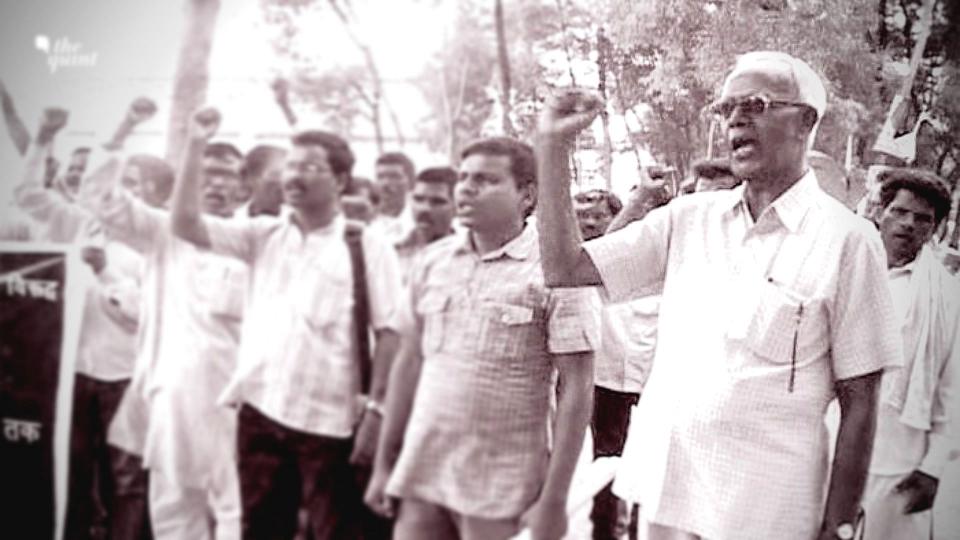'The Activist' With Priyanka Chopra, Usher is a Tone-Deaf Antithesis to Activism

Before jumping into a discussion about CBS’ show The Activist, it’s important to note that activists in India, and across the world, are penalised by an unrelenting policing system.
Father Stan Swamy, who passed away on 5 July aged 84, was arrested under UAPA. It took three weeks for a straw and sipper (required since he had hand tremors owing to Parkinson’s) to reach him after his lawyers requested for it in court. The family of jailed activist Gautam Navlakha told the press that the prison officials returned a package containing new spectacles for him which he only received after a judge’s orders. These are just two stories out of the many we don’t even hear.

According to the NCRB, over 5,900 people were arrested under the Unlawful Activities (Prevention) Act (UAPA) from 2016 to 2019—among those are activists, journalists, and authors.
What is ‘The Activist’?
"“Either the very weak Radical Left Mayor, Jacob Frey, get his act together and bring the City under control, or I will send in the National Guard & get the job done right.”" - Donald Trump, Former US President
In 2020, the ‘Black Lives Matter’ protests spread across the world but shocking instances of police brutality made headlines, ironically in a protest triggered by police brutality. This was also enabled by the US President who dubbed protestors and activists ‘thugs.’ In such a climate, a show like The Activist feels almost dystopian, and netizens have rightfully accused the show of ‘commodifying’ activism.

A picture from the Black Lives Matter protests.
Simply put, it’s a competition series to find the….best activist (?) The five-week reality series will be hosted by Usher, Priyanka Chopra, and Julianne Hough and has been created by Global Citizen. Six activists will team up with public figures to forward meaningful change in one of three causes, namely, health, education, and environment.
According to Deadline, “Activists go head-to-head in challenges to promote their causes, with their success measured via online engagement, social metrics, and hosts’ input.”

Priyanka Chopra, Usher, and Julianne Hough.
Several people online have criticised the show for being distasteful. Actor Jameela Jameel wrote on Twitter, “Couldn’t they just give the money it’s going to take to pay this unbelievably expensive talent and make this show, directly to activist causes? Rather than turning activism into a game and then giving a fraction of the much-needed money away in a “prize…?” People are dying.”
Couldn’t they just give the money it’s going to take to pay this UNBELIEVABLY expensive talent and make this show, directly to activist causes? Rather than turning activism into a game and then giving a fraction of the much needed money away in a “prize…?” People are dying. https://t.co/GLCUZcGgfb
— Jameela Jamil (@jameelajamil) September 10, 2021
Is Activism a Commodity Now?
As a society, we’ve commodified practically everything we could slap a price tag on—literally and metaphorically. The clearest example would be that of art. Masterpieces, the likes of Mona Lisa, became less about their cultural significance and more about the status symbol they come with.
With the rise of social media, addled with the pandemic trapping everybody in a cycle of purchases and doom-scrolling, there has been a commodification of self. Every person has a “worth” directly related to their monetary contribution to society. Of course, this was inevitable, especially in the capitalist economic sphere we exist in—and its hard to escape.
But The Activist crosses a very important line. Conceptually I could see where they’re coming from—these activists will get a very public platform but is a social media metric viable to score activism? How do you place a like count on human impact and social change?
"“Why is it every time I ask for a pair of hands, they come with a brain attached?”" - Henry Ford
The concept of commodification was popularised by Karl Marx, who in ‘Das Kapital’ theorised that human nature, especially the ability to protest and resist, contradicts commodification.
Shows like The Activist took an act like activism and put it in a reality show format, making it a spectacle. Reality TV has, in recent times, delved into some very strange territories (read: Netflix’s Sexy Beasts), but this CBS show trivialises the struggle of activists across the world who are incarcerated and often killed for taking a stand.
Commodification ties very closely with social media, which often acts as a medium to dilute everything, especially things like art and irony. This became evident during the past few months when the song ‘Bezos, I’ from Bo Burnham’s Inside became a popular reel audio. The song that was aimed at criticising Jeff Bezos’ unfettered spending and a broader critique of capitalism somehow turned into people celebrating their achievements. It’s not any individual user’s fault, but only a statement of how easily things can lose meaning. We really do not need to add the brave act of activism to that list.
Activism is important for social change, be it for climate change, feminism, LGBTQIA+ rights, Dalit and Adivasi rights, police reform, etc. But revolution rarely relies on corporate sponsorship.
Criticism About the ‘Faces of Activism’
Another aspect of The Activist that netizens have criticised is the talent the show forefronts—Priyanka Chopra, Usher, and Julianne Hough. Their individual contributions to social causes are not something I can debate, on account of not knowing any of them personally, but it's out there to see that they’re probably not the best choices. Wouldn’t a group of wildly successful activists be more qualified and fitting to assist activists? But they wouldn’t get the views and the publicity that these names do.
Instead, we have Julianne Hough, who attended the Casamigos Tequila Halloween Party in 2013 as the Orange is the New Black character Uzo Aduba, in ‘blackface’.

Priyanka Chopra's shirt on the cover of Conde Nast drew criticism.
After criticism, she apologised for the same saying that it wasn’t her intention to disrespect anyone. Priyanka Chopra has also had her share of controversies. A few years ago, she appeared on the cover of Condé Nast Traveller wearing a tank top that had the words ‘Refugee’, ‘Immigrant’, and ‘Outsider’ crossed out, and then ‘Traveller’.
Many people criticised the move for trivialising the struggle of refugees and Chopra issued an apology and clarified, “The magazine was very clear that they wanted to send a message about addressing xenophobia with labels.” The Quantico actor has also frequently been criticised for being selective about issues—while she spoke up about Black Lives Matter, she was silent about the CAA protests across India.
Before anybody gets up in arms about ‘Cancel Culture’, this isn’t an indictment of the celebrities or a call to banish them from the public eye. However, it does warrant the question—does 'The Activist' represent all? Activism is historically an act that has been helmed by the underprivileged, frankly because those who have privilege can afford to sit back and enjoy the fruits of a system that doesn’t harm them.
For instance, the farmers’ protests in India have been active for over nine months, through heat and rain and a raging pandemic. The Haryana police carried out a lathi charge against protestors and a young bureaucrat could be heard ordering the police to “smash their skulls.”
A show like The Activist is about the upper echelons where the elite pit activists against each other, somehow finding one cause more worthy than the others while people continue to die across the world while fighting for basic human rights. I would argue that we barely need TV anymore but if we really, absolutely must, we need better TV. I’d rather hate-watch Love Is Blind again.
Also Read: Lewinsky to Spears: Need to Relook Coverage of Women In Scandals
. Read more on TV by The Quint.'The Activist' With Priyanka Chopra, Usher is a Tone-Deaf Antithesis to ActivismKangana Ranaut to Play the Titular Role in 'Sita: The Incarnation' . Read more on TV by The Quint.

